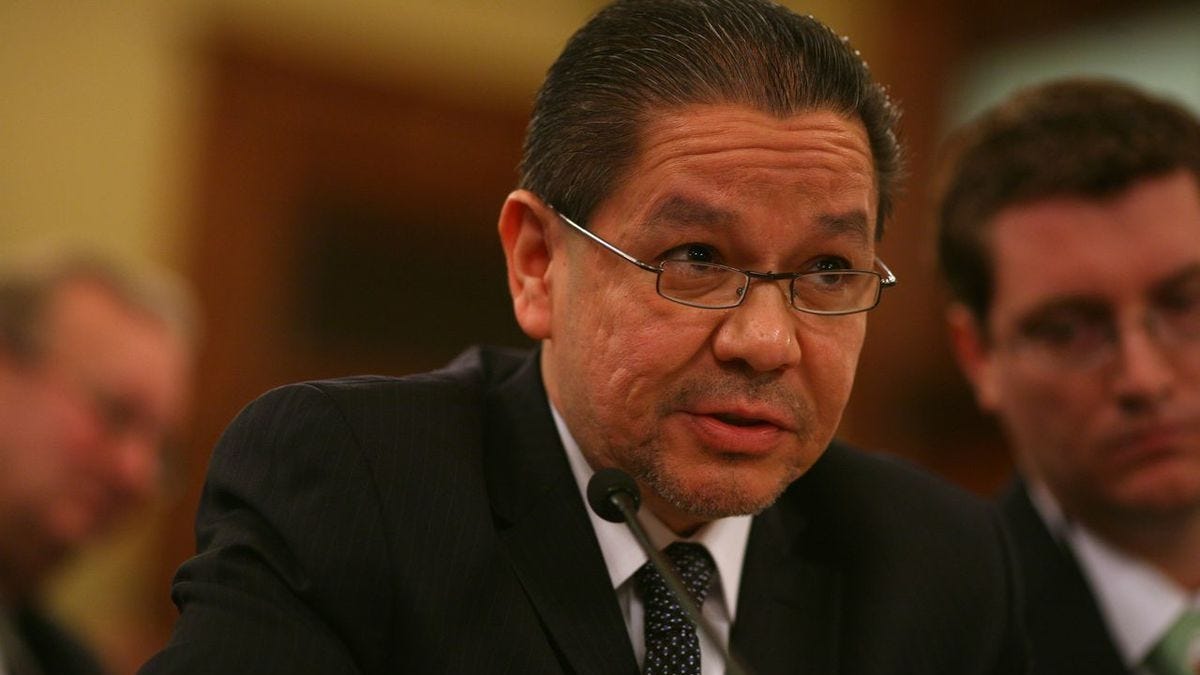THE ILLINOIZE: Thursday Free for All
March 24, 2022
Good morning. Happy Thursday.
With just 16 days to go before the scheduled end of the legislative session (remember, they moved it up due to the primary being pushed back to June), we’re going to see some wacky stuff come out of nowhere and start to move, sometimes at all hours of the night. We got our first late night surprise last night. More below.
We need your support to keep this venture running. We don’t have corporate sugar daddies and we’re not accepting candidate or issue ads. That’s why your paid subscriptions are so important to keeping this independent work up and running.
A paid subscription is just $75 per year or $7.99 per month. Just click below to sign up. Thank you for supporting the work we’re doing!
As always, drop me a note if you have questions, comments, complaints, praise, suggestions, or story ideas to patrick@theillinoize.com.
Let’s get to it.
YOUR THURSDAY FREE FOR ALL
(note: we’re not responsible for paywalls and restrictions from other news outlets)
House Democrats direct $2.7 billion in federal funds toward $4.5 billion unemployment fund deficit (Capitol News Illinois)
House Democrats are using a portion of the state’s remaining federal bailout dollars to help dig the state’s unemployment insurance trust fund out of a hole estimated to be $4.5 billion or higher.
But Republicans say Democrats aren’t doing enough to close the gap in funding and are opening the door to higher premium costs for employers.
More from Jerry Nowicki of Capitol News Illinois:
The House on Wednesday advanced a measure to allocate $2.7 billion in federal American Rescue Plan Act funds to pay down more than half of Illinois' outstanding $4.5 billion Unemployment Insurance Trust Fund debt.
The measure, an amendment to Senate Bill 2803, also included over $1 billion in general revenue fund spending to pay down other state debts.
Debate lasted nearly an hour and became contentious at times as the bill passed 68-43 with only Democratic support. The Senate was expected to take it up when they returned Thursday.
Rep. Jay Hoffman, a Swansea Democrat who is a lead House negotiator on unemployment issues, said discussions continue with business and labor interests on addressing the remaining $1.8 billion. But at least $2.5 billion was needed to keep those negotiations moving forward.
“This is an agreed bill process. Business and labor have to agree or we're not going to move the bill,” he said of ongoing negotiations to pay down the $1.8 billion. “This was a budgetary measure in order to make it easier on the agreed bill process.”
The governor’s office held closed-door meetings throughout the day to discuss the debt retirement proposal. A late amendment increased the previously planned allocation to the trust fund from $2 billion to the $2.7 billion sum.
But Republicans urged full repayment of the $4.5 billion, noting that about $6.9 billion in ARPA funds remains unspent, even if more than that has been promised in previous spending plans that passed the General Assembly.
Before the pandemic, the state had $1.2 billion in its trust fund, Rep. Tom Demmer, R-Dixon, said in a floor speech. Republicans urged the state to use ARPA funds to replenish that amount as well.
“So you might ask what happens when our unemployment insurance trust fund is in debt?” Demmer said. “Two things: One, a major tax increase on every job in the state of Illinois; and two, a benefit reduction for every worker in the state of Illinois. It's a lose-lose scenario. Taxes go up; benefits go down because the fund is in debt.”
Maybe I’m just overtired and over grumpy, but it sure seems like Democrats are doing everything they can this spring to alienate all voters south of I-80.
Related: Pritzker & Irvin react here (The Illinoize)
Illinois House votes to use $2.7 billion in federal relief money to reduce unemployment fund debt (Chicago Tribune)
Former state Rep. Eddie Acevedo gets 6 months in prison for cheating on taxes in case tied to Madigan probe (Chicago Sun-Times)
Insisting that people who make laws and enforce laws have “a particular responsibility to comply with those laws,” a federal judge Wednesday handed a six-month prison sentence to former state Rep. Edward “Eddie” Acevedo for dodging $37,000 in taxes over three years.
The case against Acevedo, who is also a former Chicago police officer, is tied to the same investigation that led to this month’s indictment of former Illinois House Speaker Michael J. Madigan.
Before he learned his sentence, Acevedo told U.S. District Judge Matthew Kennelly his behavior did not represent “the way I brought my boys up to be . . . They expected better from me, and I let them down.”
“I deeply regret my actions,” Acevedo said.
Acevedo 58, pleaded guilty to tax evasion in December, admitting he failed as a self-employed consultant to keep sufficient accounting records and shorted the government by $37,380 in taxes for 2015, 2017 and 2018. Kennelly ordered him to pay that amount in restitution.
The Chicago Sun-Times reported in June 2020 that Acevedo had been drawn into the feds’ ongoing corruption probe that ultimately led to Madigan’s indictment March 2.
I need to do a better job keeping track of the number of recently departed legislators under indictment or guilty. In the Senate, there’s Tom Cullerton, Terry Link, and Martin Sandoval (who has passed away). Former Republican Sen. Sam McCann is also under indictment on tax charges.
In the House, you have Arroyo, Acevedo, and, of course, Michael J. Madigan.
But, there won’t be any ethics legislation this year…
After the Madigan charges, Democrats lack an appetite for new ethics reform this spring (WBEZ)
The day a 22-count federal corruption indictment came down against former Democratic House Speaker Michael Madigan, those controlling Illinois’ state government quickly reacted to the horrors of the racketeering and bribery allegations.
Democratic Gov. JB Pritzker called the charges “deplorable and a stark violation of the public’s trust” and touted how state ethics laws had been “tightened” on his watch. Senate President Don Harmon, D-Oak Park, called the allegations “disturbing.”
And Democratic House Speaker Emanuel “Chris” Welch appeared before cameras following Madigan’s indictment and said that both ethics and corruption “have to be taken seriously” at the statehouse.
Despite all of those still-fresh superlatives of shock and outrage, the chances of Democrats pushing through a new round of post-Madigan indictment ethics reforms appear bleak at the moment, with barely three weeks left before the scheduled end of the Legislature’s spring calendar.
Lauding an ethics package already passed last September, neither Harmon nor Welch signaled any short-term interest in looking for new Madigan-centric things to fix in the state’s legislative ethics statutes before the fall elections.
I have a laundry list of easy ethics reforms that could and should be passed. I’ll try to get it in writing for you all.
Related: Op-Ed: Madigan indictment proves need for ethics reform (Shaw Local)
Illinois’ new health care program for undocumented seniors leaves some of the most vulnerable behind (Chicago Tribune)
For more than a decade, Ananias Ocampo pushed a heavy ice cream cart through the streets of the Pilsen neighborhood as he waited for knee replacement surgery. When it got too cold for ice cream, the 78-year-old would go door-to-door selling homemade cheese even though he depended on a walker. “It was a blessing to be able to work,” he said in Spanish.
Even as his pace got slower and he developed Parkinson’s disease, he had no option other than to keep working to sustain himself. Like most undocumented immigrants who are ineligible for the federal Medicare and Medicaid programs, Ocampo did not have health insurance. And though he received care at a public hospital, he had to keep waiting for the surgery. “Pero nunca perdí la esperanza,” he smiled. “I never lost hope.”
In December 2020, Ocampo got a lifeline when Illinois lawmakers passed a new Medicaid-like program that covers low-income residents age 65 and older, regardless of their immigration status. But it was bittersweet. Unlike standard Medicaid coverage for U.S. citizens, the new health care program does not include funding for long-term care facilities like rehabilitation centers, nursing homes and other home and community-based services.
That means that Ocampo — who lives alone and has no family in Chicago who could take care of him after the intensive surgery — would not qualify to stay at a rehab facility as he recovered.
It’s situations like this that I’ve always supported a “path” to citizenship for those here illegally. This gentleman could have taken citizenship classes, paid a fine, and begun paying taxes, and he would fit into the qualifications under Medicare and Medicaid. Instead, he’s in a gray area where a human isn’t treated like a human because he needs something that isn’t covered. We have to do better when we discuss this problem in our country. Yes, they’ve broken the law. Yes, there should be punishment for that. But if they need help, they need help.
SOME TOP LINKS FROM THE WEEK SO FAR
Democrats Reject a Pritzker Parole Board Nominee, Other Confirmations in Doubt
Griffin's "Gatekeeper": Threats, Intimidation, and Promises of Campaign Cash
JOIN US












